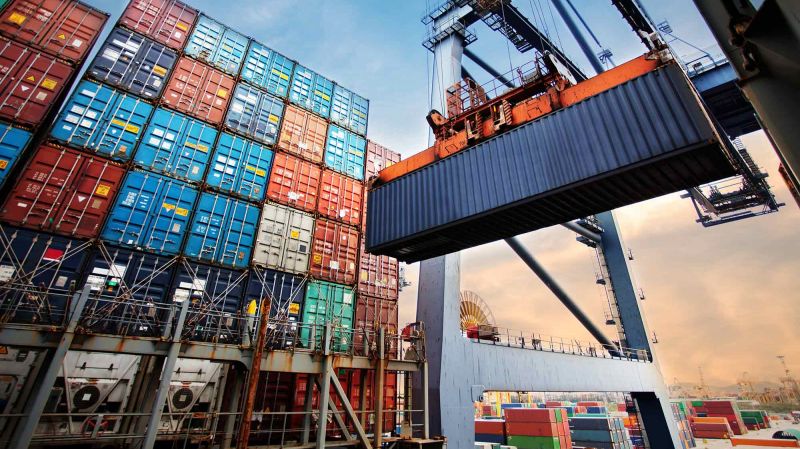What’s the New Supply Chain Playbook?
Building resilience in trade networks will mean greater emphasis on diversification and trusted relationships

First it was the trade war. Now the pandemic. Supply chains that are the backbone of manufacturing and global commerce have been forced to adapt, then adapt again, as suppliers are cut off. What should supply chain strategists do now? Smith Business Insight asked Anthony Goerzen to weigh in. Goerzen is Donald R. Sobey Professor of International Business at Smith School of Business. He has done extensive research into the strategic management of firms competing in international markets. Here, he answers our questions:
There was turmoil in global supply chains even before coronavirus hit. How did ongoing trade wars affect the calculus of global companies regarding their supply chains and alliances?
Trade friction clearly has been having an effect on firms’ calculations as it relates to their global supply chains. High-profile examples include Huawei, which was being systematically excluded from providing their high-tech products to North American and European markets, as well as Canadian canola producers, which were barred from shipping to China, all for non-market-related reasons. As such, many countries, including China, the U.S., and others, have shown themselves to be ready to use trade restrictions to bolster political demands, even more so on smaller or weaker partners. These recent developments have made many managers even more aware that business logic often does not determine trade flows, and so this has become a more important consideration for firms.
What adjustments, if any, do you think global businesses will make to their supply chains going forward? Will we see any decoupling?
Businesses will need to become more attuned to the notion that governments may begin developing more nimble mechanisms designed to shut off the movement of people and products in the face of the next inevitable crisis. This will make global supply chains that much more fragile and foreign markets that much more risky. Moreover, the current pandemic may well be significantly more difficult for emerging markets to deal with as they generally have weaker institutions and less developed health-care systems than those in more developed economies, and so COVID-19 could devastate those poor countries. Health-care spending in Canada, for example, is almost 150 times greater than that in Pakistan, and Canadians are worried about our hospitals being overrun. This would be, first and foremost, a human tragedy.
In addition, from an economic perspective, those same emerging economies are not only potential markets but also the source of many products that are essential to the success of many modern products that we take for granted in North America and Europe. Cobalt, for example, is essential in the production of cellphones and anything rechargeable, including electric vehicles. The world relies on the Democratic Republic of Congo for 70 per cent of supply; if Africa succumbs to COVID-19—as is currently predicted—it would become yet another serious challenge to the business models of many large businesses that are household names, like Apple and Tesla.
Firms have always been sensitive to global supply chain risk, but the current pandemic has made this problem undeniable and much more urgent. Decoupling, however, is unlikely since the value that is created through global economic integration and the global supply chains that emanate from that is simply too large—it would be like trying to keep squirrels off your bird feeder. However, firms—and governments—will surely begin reviewing their various types of exposure in earnest.
What can firms do to make their supply chains more resilient?
Resilience in supply chains is the same as resilience in your personal investments. It’s first and foremost having a nuanced understanding of the risk exposure incorporated into your business model. This is followed very closely by the prudence of diversification as a risk management tool. Many pharmaceutical companies discovered recently that a pandemic can shut off the supply of essential ingredients from a particular location. China, for example, manufactures key ingredients in the global supply chain for antibiotics, diabetes drugs, painkillers, and antiretrovirals, and the availability of these products was suddenly threatened by the pandemic. Single geographic sources can be extremely attractive as they have clear advantages of economies of scale and of learning and so often lead to cheaper prices and/or greater volumes. However, the current pandemic provides clear evidence that the diversification of supply chains is essential.
You have spoken in the past about the importance of relationships and alliances in generating the learning that’s required to be successful on a world stage. Will alliances be more difficult to create and sustain in a less trustful world?
The importance of personal relationships to build strong alliances will remain a key success factor. Forever. Whether this is now more difficult to create and sustain is an empirical question because it’s always been pretty difficult—something for which “knowledge through experience” is required. But perhaps it has never been more important to create the level, quality and type of communication that leads to trust.
Does this episode finally put to lie the idea that, in the age of globalization, “distance is dead”?
Actually, I would put that the other way. That distance is alive and well in the age of globalization. Location matters.